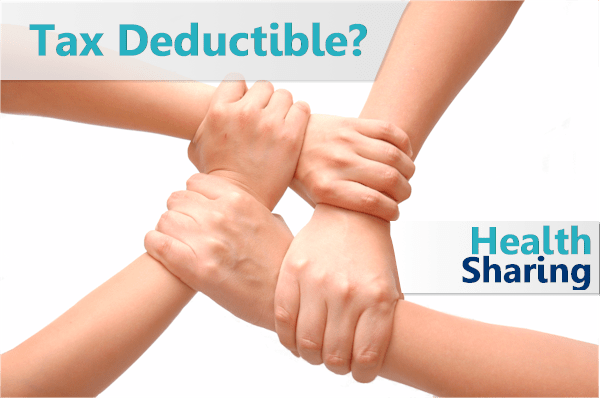 Health share comparison - are health sharing plans tax deductible
Health share comparison - are health sharing plans tax deductible 
Are Health Sharing plans Like OneShare Tax Deductible
This question comes up often when comparing health sharing plans and regular health insurance.
It's mainly a question for self-employed people and small businesses.
We need the full picture to make an informed decision on health sharing.
Let's jump right into the question of whether health sharing plans are tax deductible.
You can always jump to a health sharing quote here:
Otherwise, let's look at the question in a little more detail to make sure we're all clear:
- What is the health insurance tax deduction
- Do health sharing plans have the same tax deduction
- Comparing the costs of health sharing plans and traditional plans
First, let's specify what deduction we're talking about.
What is the health insurance tax deduction
Many people do not realize that health insurance premiums can be deductible.
This is primarily for self-employed people.
It's line 29 on the 1040 tax form:
![]()
If you are self-employed, you're allowed to deduct up to your net business income amount for health insurance premium.
This can also apply to insurance premiums for other types of coverage such as dental and vision.
This can be a pretty big tax deduction in today's world depending on whether you're getting a tax credit on the exchange (more on that later).
Keep in mind that this deduction is "above the line" on the 1040.
This means that if figures into your Adjusted Gross Income.
You would then apply your tax rate to see what your real "out of pocket" amount it.
For example:
- We payed $4K in health insurance premium for a year
- Our Federal and State combined tax percentage is 25%.
- Our real "after-tax" difference is then $1K ($4K x .25).
That's the amount that really matters...what we'll have to pay or get back at tax filing time.
If your income is all w2, you would not have this tax deduction.
This is a huge tax benefit to self-employment income.
If you are 1099, that essentially means you're self-employed in terms of how the IRS looks at it.
Okay...so what about health sharing plans?
Do health sharing plans have the same tax deduction
Health sharing plans are not officially health insurance plans.
Health sharing plans are memberships essentially where members share healthcare costs with each other.
They therefore do not have this deduction for self-employment health insurance.
Can I use a QSEHRA with a health sharing plan?
Currently, it does not appear that we can use a QSEHRA to pay for health sharing membership costs.
The law which thrusted the QSEHRA into the spotlight specifies a MEC or Minimal Essential Coverage.
This has a very specific meaning under the law and health sharing plans
currently have not been deemed to meet this requirement.
Of course, check with your accountant for updates and clarifications!
This entire field is in constant flux!
IRS would need to provider further guidance but for now, health sharing does not appear be eligible for the tax deduction on line 29 of the 1040 or under a QSEHRA.
Can I use an HSA with health sharing plans?
Currently, you are not able to fund an HSA account based on having a health sharing plan.
HSA's require a very specific type of health INSURANCE plan called a HDHP plan.
Health sharing plans are memberships...not insurance.
They do not qualify for the HSA funding and deduction.
So, how do we compare the tax implication and "cost" of health sharing plans versus traditional health insurance?
Comparing the costs of health sharing plans and traditional plans
In our example above, we were losing $1000/year in after-tax money (assuming self-employed).
That's approximately $80/month.
We can think of that as an addition to the monthly membership cost for a health sharing plan.
So...
Let's assume we're in our 50's.
- An OneShare $5000 plan (the most popular) might run approximately $360/month.
- The Bronze ACA health plans might run $700/month depending on area and carriers available.
That's a different of $340/month (roughly half) with the health sharing plan.
Now, if we're self-employed, we might add back in $80/month to the $340 to get a total of $420.
Now the savings is $280/month.
Roughly $3360/year in savings.
This assumes we're self employed.
Of course, there are other big differences between health sharing plans and Obamacare plans which we need to understand.
We're strictly looking at the tax treatment difference between the two options.
Again, make sure to check in with your accountant and definitely research the other differences.
You can also compare the Health sharing plans here.
We're happy to help with any questions.
There is ZERO cost for our assistance!
You can run your short term health sharing quote here to view rates and plans
Again, there is absolutely no cost to you for our services. Call 800-320-6269 Today!
